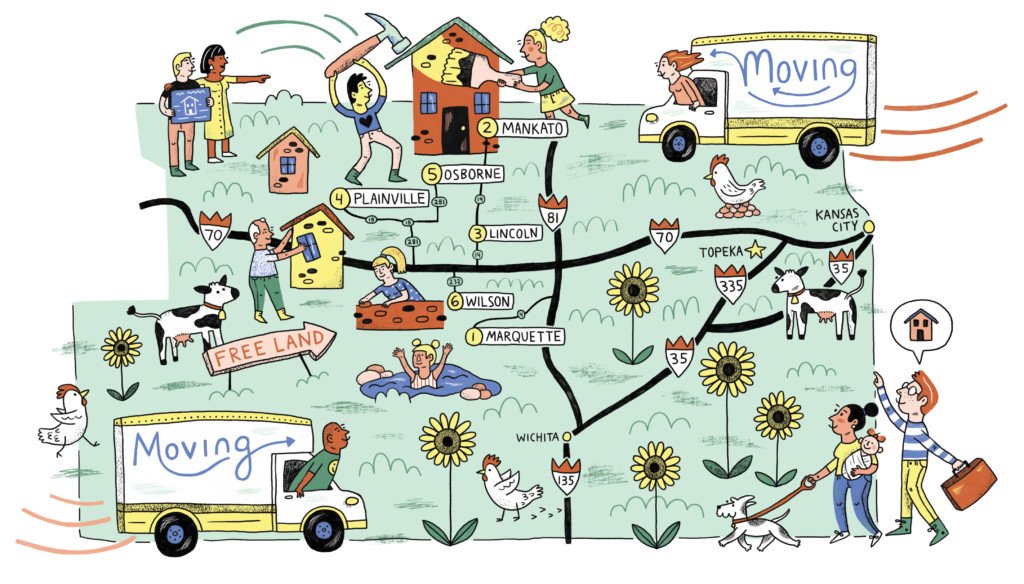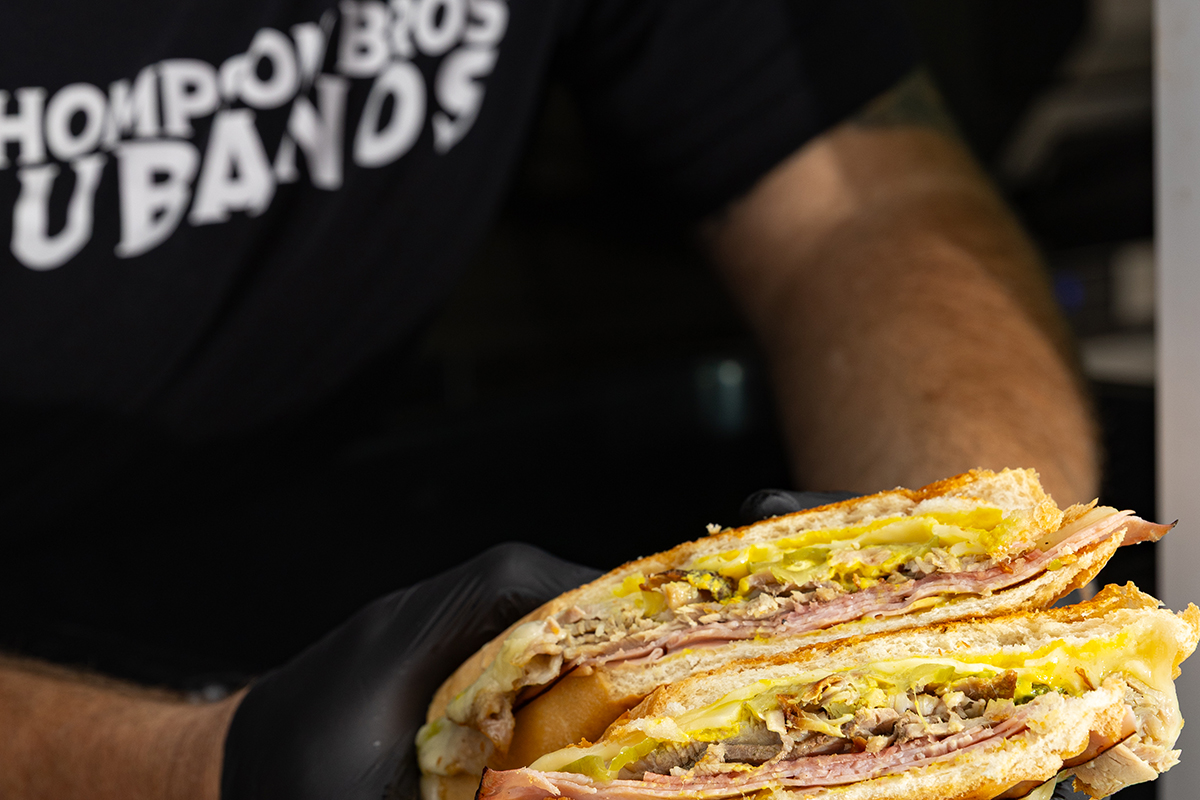Marquette, Kansas
Location: Central Kansas
Population: 680
Nearest Walmart: 30 minutes
The Deal: Lots range from 11,000 to 25,000 square feet. Construction must be completed within one year.
fact: Has four museums, including the Kansas Motorcycle Museum, which opened in 2003 as a tribute to native-born racing champion “Stan the Man” Engdahl.
Mankato, Kansas
Location: North Central Kansas
Population: 860
Nearest Walmart: 45 minutes
The Deal: Lots average 18,000 square feet. Construction must be completed within two years of acquiring the lot.
Fact: Has several festivals throughout the year, including a summer concert series, an October car show and the Jewell County Threshing Bee.
Lincoln, Kansas
Location: North Central Kansas
Population: 1,300
Nearest Walmart: 40 minutes
The Deal: Lots are anywhere from 12,000 to 36,000 square feet. Construction must be completed within four and a half years.
Fact: Has several museums including Crispin’s Drug Store Museum, dedicated to the golden age of the small-town pharmacy.
Plainville, Kansas
Location: North Central Kansas
Population: 1,850
Nearest Walmart: 20 minutes
The Deal: Lots are approximately 155 by 93 feet. Construction must be completed within a year and half.
Fact: Just north of one of the largest oil fields in the state and oil production is still an important part of the local economy.
Osborne, Kansas
Location: North Central Kansas
Population: 1,300
Nearest Walmart: 75 minutes
The Deal: Lots average 23,100
square feet. Construction must
be completed within one year.
fact: Sits along the South Fork of the Solomon River and is known for outdoor activities such as fishing and hunting, as well as hiking and biking tours.
Wilson, Kansas
Location: Central Kansas
Population: 700
Nearest Walmart: 45 minutes
The Deal: Lots average 30,000 square feet. The home must be completed and occupied within two years.
Fact: Known as the Czech capital of Kansas and is home to the world’s largest Czech egg and a decades-old Czech festival that takes place annually.
Who makes the move?
After 16 years in Denver, Chris Rhea and his wife wanted to move to his hometown in rural North Central Kansas.
The couple’s unique circumstances — Karen works remotely as a graphic designer and Chris got a job as the city administrator — made them perfect candidates for Mankato’s free land deal. People tend to picture those who get the land as homesteaders with acres of open farmland, but that’s not the case, Chris says.
“They’re almost always shocked to hear that we’re talking about a normally sized residential lot,” he says.
No one is getting a free farm in Mankato, he says. Rather, they’re finding a place to build a house in town — which is otherwise harder than city folk would expect.
“One of the struggles that towns our size face is a lack of good housing,” Chris says. “There’s not a lot of turnover. These places have a lot of stability. But if you’re trying to buy a house, the problem is that there’s a lot of stability, and there just isn’t a lot of movement in the market.”
The stability, he says, affects the job market too.
“We have, on paper, zero unemployment, but there also isn’t a lot of hiring happening,” he says. “People aren’t job hopping, and there aren’t a lot of businesses moving in.”
Relocating to a town like Mankato is ideal for someone who telecommutes, he says, but maybe not for someone starting from scratch.
“If you’re looking to literally restart, I’d have to be honest — you might need to be prepared for a challenge,” he says.






